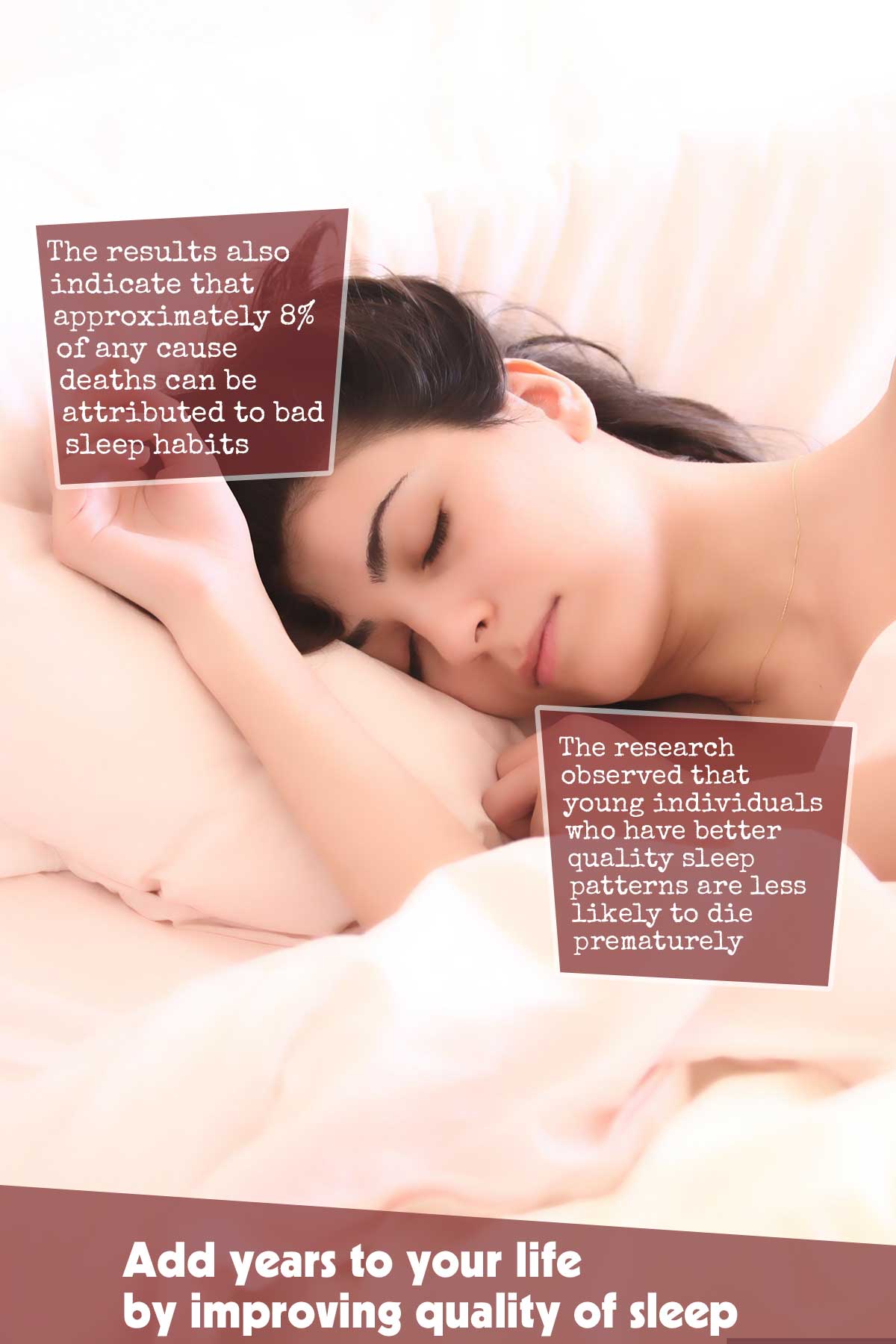According to a study, having good quality sleep can play a part in supporting the heart and overall health, and perhaps even in how long we live. The research observed that young individuals who have better quality sleep patterns are less likely to die prematurely.1✅ JOURNAL REFERENCE
DOI: abs/10.1016/S0735-1097(23)02119-8
The results also indicate that approximately 8% of any cause deaths can be attributed to bad sleep habits.
The researchers observed a clear dose-response connection, so an individual has a stepwise reduction of cardiovascular and all-cause death the more beneficial factors they have with regards to having higher sleep quality.
For their analysis, the researchers included data from 172,321 individuals with an average age of 50 who took part in a survey carried out every year by the National Center for Health Statistics and the CDC to help evaluate the population’s health and includes questions regarding sleep and sleep patterns. The study used a nationally representative population to examine how different sleep behaviors, and not only sleep duration, could have an impact on life expectancy.
Because participants were able to be linked to the records from the National Death Index, the connection could be examined between individual as well as combined sleep factors and cause-specific death as well as all-cause death. Individuals were monitored for an average of 4.3 years when 8,681 of them died.
2,052 of these deaths were from cancer, 2,610 were cardiovascular disease-related deaths, and 4,019 deaths were as a result of other causes.
Researchers evaluated 5 different quality sleep factors making use of a low-risk sleep score which they developed according to answers obtained from the survey.
Factors included:
- An ideal 7 to 8 hours of sleep a night
- Trouble falling asleep a maximum of twice a week
- Difficulty remaining asleep a maximum of twice a week
- Not making use of any sleep meds
- Feeling well rested after sleeping a minimum of 5 days a week.
A score of 0 or 1 point was given for each factor with 5 points indicating the highest quality of sleep.
If individuals have each one of these ideal sleep behaviors, they are more likely to live longer. So, if overall sleep can be improved, and sleep disorders identified, some of this early death might be able to be prevented.
For the analysis, other factors that might have increased the risk of death were controlled for, such as other medical conditions, alcohol and smoking consumption, and lower socioeconomic status.
In comparison to individuals who had 0 to 1 favorable sleep factors; individuals with all 5 had 30% less chance of dying for any reason, 19% less chance of dying from cancer, 21% less chance of dying from cardiovascular disease, and 40% less chance of dying from causes other than cancer or heart disease,.
These other causes of death are likely a result of neurodegenerative diseases, infections, or accidents which include Parkinson’s disease and dementia.
Among women and men who reported having all 5 measures of quality sleep, life expectancy was 2.4 years higher for women and 4.7 years higher for men in comparison to individuals with none or only 1 of the 5 low-risk sleep factors.
More research is required to establish why men who had all 5 low-risk sleep factors had twice the life expectancy increase in comparison to women with identical quality sleep.
If these good sleep patterns can be developed even from an early age, ensuring generally good sleep hygiene and sleep with few distractions, overall long-term health can significantly benefit.
The researchers estimated life expectancy gains beginning at age 30 for the study, but the model could be used for predicting gains at other ages as well. Younger individuals need to understand that many health behaviors are cumulative over time.




